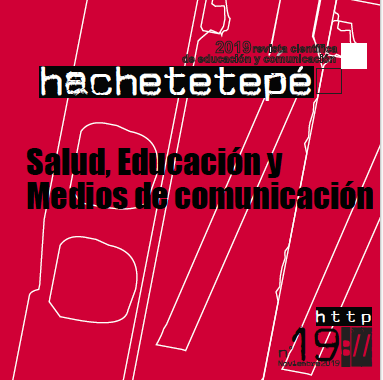I want to write in handwriting: Letters from a child with cancer about work in social health education
Abstract
The study was developed and based on the presuppositions of Social Education, therefore, in a scenario and perspective different from those of Hospital Pedagogy. The child and teacher wrote a letter expressing his ideas and feelings about the teacher's work and its implications for the learning of the cursive letter. The results obtained from this study show that the work of the teacher in the home care of children with cancer treatment, in the perspective of Social Education, favors the learning of reading and writing, making possible the cultural appropriation, in the case the written language, as a possibility of construction of the autonomy of the subject, from which he gains voice to express his ideas and feelings.
Keywords
Downloads
How to Cite
License

This work is licensed under a Creative Commons Attribution-NonCommercial-NoDerivatives 4.0 International License.
Those authors who have published with this journal, accept the following terms:
- They will retain their copyright and guarantee the journal the right to first publication of their work, which will simultaneously be subject to the Creative Commons Attribution License . They may be copied, used, disseminated, transmitted and publicly displayed, provided that the authorship, url, and magazine are cited, and are not used for commercial purposes. No derivative works are allowed.
- They may adopt other non-exclusive license agreements for the distribution of the published version of the work (e.g., deposit it in an institutional telematic archive or publish it in a monographic volume) provided that the initial publication in this journal is indicated.
- Disseminate your work through the Internet (e.g., in institutional telematic archives or on your website) once the manuscript is accepted, which may lead to interesting exchanges and increased citations of the published work. (See The effect of open access).
Hachetetepé. Scientific journal of education and communication does not charge a fee for the submission of manuscripts or for the publication of its articles.
References
Abbagnano, N. (2000). Dicionário de Filosofia. São Paulo: Martins Fontes.
Álvarez, M. (2017). La pedagogía hospitalaria: clave en la atención al niño enfermo y hospitalizado y su derecho a la educación. Salamanca: Ediciones Universidad de Salamanca Aula, 23, 2017; 33-47.
Bruner, J. (1997). Atos de significação. Porto Alegre: Artes Médicas.
Fernandes, S. (2016). Pedagogia crítica como práxis marxista humanista: perspectivas sobre solidariedade, opressão, e revolução. Educ. Soc., Campinas, 37(135); 481-496.
Freire P. (1997). Professora sim, tia não: cartas a quem ousa ensinar. São Paulo: Olho dágua.
Freire, P. (1996). Pedagogia da Autonomia. São Paulo: Paz e Terra.
Feire, P. (2000). Pedagogia do oprimido. 29º ed. São Paulo: Paz e Terra.
Paula, E. (2010). Pedagogia hospitalar na Pedagogia Social: reflexões teóricas. En Anais do III CONGRESSO INTERNACIONAL DE PEDAGOGIA SOCIAL, 3; 1-16, 2010, São Paulo: Associação Brasileira de Educadores Sociais (ABES).
Rocha, S. M. (2012). Narrativas infantis: o que nos contam as crianças de suas experiências no hospital e na classe hospitalar. Dissertação (Mestrado em Educação). Universidade Federal do Rio Grande do Norte, Natal, Rio Grande do Norte, Brasil.
Silva, R. y Farago, A. (2014). Pedagogia hospitalar: a atuação do pedagogo em Mespaços não-formais de educação. Cadernos de Educação: Ensino e Sociedade, 1(1); 165-185.
Souza, M.G.S y Cabral,C.L.O. (2015) A narrativa como opção metodológica de pesquisa e formação de professores. Horizontes, 33(2); 149-158.
Terence, A. y Escrivão Filho, E. (2006). Abordagem Quantitativa e qualitativa da pesquisa –ação nos estudos organizacionais. Associação Brasileira de Engenharia da Produção. Disponible en:< http://www.abepro.org.br/biblioteca/ENEGEP2006_TR540368_8017.pdf>(Aceso el 13 de septiembre de 2015).
Vergara, S. (2005). Métodos de pesquisa em Administração. São Paulo: Atlas.






